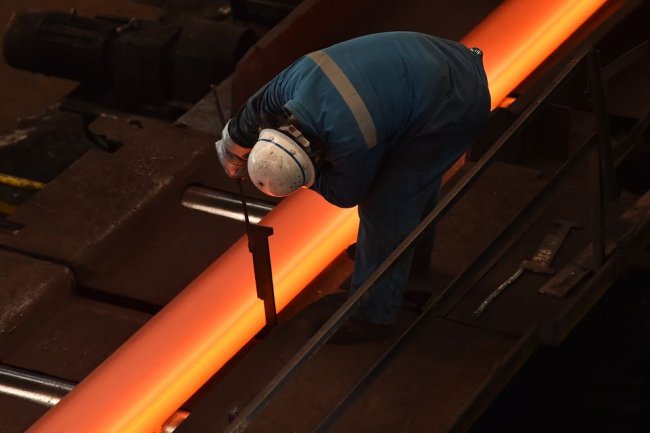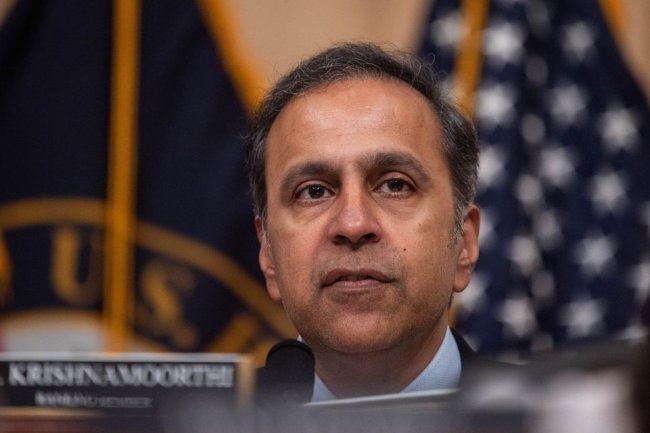A Timeline of Mar-a-Lago Probe, Trump Indictment
A timeline of former president’s handling of classified documents and resulting charges leveled at him and two aides Former President Donald Trump’s indictment comes as he is seeking the GOP presidential nomination. Mandel Ngan/AFP/Getty Images Mandel Ngan/AFP/Getty Images By Sadie Gurman Updated July 28, 2023 12:46 pm ET Special counsel Jack Smith issued a new indictment against former President Donald Trump Thursday alleging that he ordered aides to delete surveillance footage from the Mar-a-Lago club so it couldn’t be turned over to a grand jury. The broadened indictment is the latest development in a continuing probe that began soon after Trump left th


Special counsel Jack Smith issued a new indictment against former President Donald Trump Thursday alleging that he ordered aides to delete surveillance footage from the Mar-a-Lago club so it couldn’t be turned over to a grand jury.
The broadened indictment is the latest development in a continuing probe that began soon after Trump left the White House in 2021. The case is set to be tried in Fort Pierce, Fla., in May 2024, in the midst of the presidential campaign.
Here is a look at key dates in the case, drawn from court documents and interviews.
2021
Jan. 20 Trump makes a rushed and chaotic exit from the White House, and Joe Biden is sworn in as president.
May 6 The National Archives and Records Administration (NARA) begins approaching the former president’s team, requesting missing presidential records. In the course of 2021, the archives and the Trump team had an extensive exchange about the disposition of the records from the former president’s White House.
Late December NARA is informed of 12 boxes ready for retrieval at Mar-a-Lago.
Former President Donald Trump has been indicted by a Miami federal grand jury in the investigation into his handling of classified documents. Trump said that he is innocent. Photo: Evan Vucci/Associated Press
2022
Jan. 18 NARA retrieves 15 boxes of documents from Mar-a-Lago that the agency believes contain classified national-security information.
Feb. 9 NARA refers the matter to the Justice Department. The Federal Bureau of Investigation opens a criminal investigation into how classified documents became stored at Mar-a-Lago after Trump left the White House.
April 29 NARA tells Trump’s legal team it intends to provide the documents to the FBI, revealing in a letter that officials found over 100 documents with classification markings, comprising more than 700 pages. Trump’s lawyers cite executive-privilege concerns in requesting an extension, which the agency denies.
May 10 NARA tells Trump’s lawyer it will provide the FBI with access to the records “as early as” May 12.
May 11 The Justice Department issues a grand jury subpoena to Trump’s team seeking all classified documents at Mar-a-Lago and tells Trump’s lawyers they can comply by relinquishing the material at the premises, along with a sworn statement that they had turned over all the requested records.
May 16-18 FBI agents review the 15 boxes and find classified documents in 14 of them, including 184 marked classified, 67 marked confidential, 92 marked secret and 25 marked top secret. Some of the information was derived from clandestine human intelligence sources, the FBI says.
May 25 Trump’s attorney Evan Corcoran writes a letter to a top Justice Department official saying that Trump had absolute authority to declassify classified information during his presidency and didn’t break any laws.
June 2 Corcoran requests FBI agents meet him the following day at Mar-a-Lago to pick up the documents they sought.

Attorney Evan Corcoran said the former president didn’t violate any criminal laws.
Photo: Pete Kiehart/Bloomberg News
June 3 Three agents and
Jay Bratt, chief of the Justice Department’s counterintelligence and export control section, arrive at Mar-a-Lago to collect the documents. Corcoran turns over an accordion folder containing 38 more documents marked as classified, including 17 described as top secret, 16 marked as secret and five more marked as confidential. According to the Justice Department, Corcoran said all the records from the White House were in the storage room, that no other records were in any other location and that all available boxes were searched. But the department said he wouldn’t let the agents look in the remaining boxes in the storage room to confirm no more classified documents were in them.June 8 Bratt sends a letter to Trump’s lawyers telling them to secure the storage room and all boxes moved from the White House “until further notice.” He notes that Mar-a-Lago doesn’t have a secure location for the storage of classified information and that documents there “have not been handled in an appropriate manner or stored in an appropriate location.”
June 22 The Trump Organization, Trump’s family business, receives a draft subpoena for surveillance footage from cameras at Mar-a-Lago. That footage is turned over, according to an official.
June 23 Trump has a 24-minute phone call with Mar-a-Lago’s property manager Carlos de Oliveira, according to prosecutors.
June 24 De Oliveira and Walt Nauta, Trump’s valet, both send text messages to Mar-a-Lago’s head of information technology, referred to in court filings as Trump Employee 4, seeking to arrange a meeting with him, prosecutors allege.
June 25 De Oliveira and Nauta meet at Mar-a-Lago and head to a security guard booth where surveillance camera footage is displayed, according to the July 27 indictment. With a flashlight, they walk through a tunnel to a storage room and point out security cameras.
June 27 De Oliveira goes to the IT office at Mar-a-Lago and asks the unnamed employee to follow him into a small room known as the “audio closet,” the indictment says. In that room, de Oliveira tells the colleague that “the boss” wants to delete the contents of a server that stores surveillance camera footage. The other Trump employee allegedly responds that he doesn’t know how to delete the server and doesn’t think he would have the right to do so. Later that day, Trump and de Oliveira have a brief phone call.
Aug. 5 FBI agents obtain a warrant to search Mar-a-Lago. The warrant cites an investigation into violations of the Espionage Act, a presidential-records law and obstruction of justice. Investigators say they developed evidence that shows that “government records were likely concealed and removed from the Storage Room and that efforts were likely taken to obstruct the government’s investigation.”
Aug. 8 FBI agents search Mar-a-Lago, seizing 33 boxes, containers and other evidence containing more than 100 classified records, including information classified at the highest levels.

FBI agents searched Donald Trump’s Mar-a-Lago home in Palm Beach, Fla., in early August last year.
Photo: Terry Renna/Associated Press
Sept. 15 U.S. District Judge Aileen Cannon appoints a respected retired judge to independently review the documents the FBI seized from Mar-a-Lago after Trump’s attorneys argue some might be protected from Justice Department review by attorney-client or executive privileges.
Nov. 15 Trump launches a third consecutive White House bid.
Nov. 18 Attorney General Merrick Garland appoints former federal and international war-crimes prosecutor Jack Smith as special counsel to oversee Justice Department investigations into Trump.
Dec. 1 After months of legal tug of war, an appeals court orders an end to the “special master” process for reviewing documents, delivering a major boost to the Justice Department’s continuing criminal investigation.
2023
Jan. 9 News organizations report that classified documents were found in November at Biden’s think tank in Washington dating to his time as vice president, the first of a series of disclosures of classified material in Biden’s possession.
Jan. 12 Garland names Robert Hur, a former U.S. attorney during the Trump administration, as special counsel to examine why classified documents were found at Biden’s home and office.

Robert Hur was named to lead a probe into why classified documents were found at President Biden’s home and office.
Photo: Steve Ruark/Associated Press
Feb. 10 The FBI removes several documents, including one with classified markings, during a search of former Vice President Mike Pence’s Indiana home.
March 22 People familiar with the matter tell The Wall Street Journal that a federal judge found Smith’s team presented convincing evidence that Trump misled his own lawyers about his retention of classified documents after leaving the White House. The decision compels Corcoran to provide more testimony as well as notes of his conversations with Trump.
June 2 The Justice Department closes its investigation into the potential mishandling of classified documents at Pence’s home without criminal charges.
June 5 Trump lawyers meet with Smith and other Justice Department officials to argue against any indictment of the former president and raise allegations of prosecutorial misconduct. Around this time, federal prosecutors inform Trump’s team that he is the target of their criminal probe.
June 8 A federal grand jury indicts Trump, charging him with 37 counts on seven different charges, including willful retention of national-defense information, withholding a record, false statements and conspiracy to obstruct. The indictment marks the first time in history that the Justice Department has criminally charged a former president.
June 13 Trump is arraigned in Miami and pleads not guilty to all charges. Nauta, charged alongside the former president on five of the counts as well as a false-statements charge, pleads not guilty in a later hearing.
July 21 Judge Aileen Cannon, the Trump appointee overseeing the case, sets a May 20, 2024, trial date, rejecting Trump’s efforts to delay the trial until after the 2024 presidential campaign as well as the prosecution’s push to begin in December.
July 27 Smith issues a superseding indictment charging Trump with an additional count of willful retention of national-defense information and adding two charges of obstruction for both Trump and Nauta. De Oliveira is added as a third defendant, charged with multiple counts including making false statements and trying to mutilate and destroy evidence. A Trump spokesman calls the charges part of “a continued desperate and failing attempt” by the Justice Department to “harass President Trump and those around him.”
—Jan Wolfe contributed to this article.
Write to Sadie Gurman at [email protected]
What's Your Reaction?

















